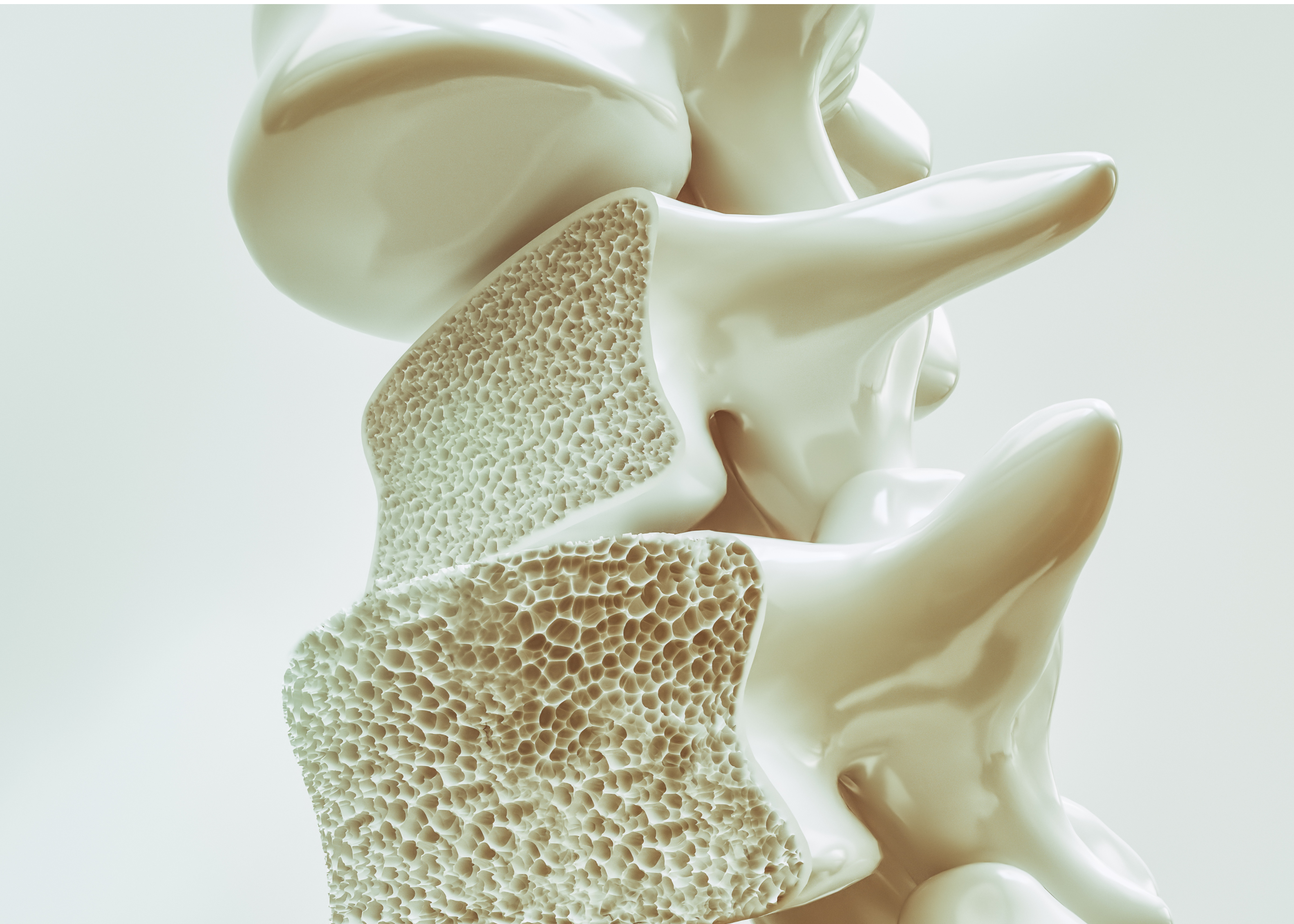We often hear about the importance of exercising, consuming calcium, and vitamin D to prevent osteoporosis. Have you ever wondered what’s behind this statement?
Knowledge is power!
Let’s get to know what osteoporosis is and truly understand why it’s so important to build strong bones and have a proper and adequate diet.
Osteoporosis is a condition characterized by the weakening of bones, causing them to become less dense and less compact, making them more susceptible to fractures.
Bone is a living tissue, and throughout life, processes of breakdown and rebuilding occur within it. Small amounts of bone are constantly being broken down and replaced with new bone. During childhood, and especially during adolescence, bone mass is built. The maximum amount of bone varies greatly from person to person and is determined by both genetic and environmental factors. Environmental factors include nutrition, physical activity, and diseases. When the rate of bone formation equals the rate of bone breakdown, the bone remains stable and healthy. This occurs in the third and fourth decades of life. Afterward, especially in women after menopause, the rate of bone breakdown exceeds the rate of bone formation. What happens when there is more bone breakdown than bone formation? A gradual decrease in bone mass and density occurs, which is referred to as a decrease in bone density! The rate of bone loss is relatively slow, but over the years, it accumulates and becomes more significant. Changes occur in the bone structure, leading to a decrease in bone density and making us more susceptible to fractures. Bone loss can vary in severity. In the early stages when bone loss is minimal, it is called osteopenia. When bone loss is severe, it is called osteoporosis.
And what influences bone density?
Nutrition and exercise.
What type of exercise?
Resistance exercises ,muscle-strengthening exercises use weights or your body’s own resistance to work against gravity.
Pilates Reformer is defined as resistance training for everything! Consistency and regularity in performing Pilates Reformer will prevent bone density deterioration.
What about the frequency of exercise?
A minimum of two to three times a week.
And what about nutrition?
Five micronutrients are important for maintaining bone density: Calcium, Vitamin D, Magnesium, Vitamin B12, and Vitamin K.
Dietary sources of each of these micronutrients:
- Calcium: Dairy products, sesame tahini, sardines, tofu.
- Vitamin D: In response to sunlight, the body produces vitamin D in the skin. Of course, not at a level of excessive exposure that causes irreversible damage and cancer. If there is no exposure to sunlight, it is advisable to consult with a dietitian and take supplements.
- Magnesium: Green leafy vegetables, nuts, whole grains. There isn’t much magnesium in food, so dietary supplementation can also be considered.
- Vitamin B12: Found only in animal-derived foods – beef, poultry, turkey, fish, eggs.
- Vitamin K: Found in green leafy vegetables, cabbage, green tea, kale, etc.
In summary – the importance of nutrition and exercise affects all aspects of life.
The importance of bone health is crucial, and there are no magic tricks here.
We must take care of our bones and engage in physical activity from a young age when bone development occurs.
This way, we can significantly delay the process of decreased bone density.


